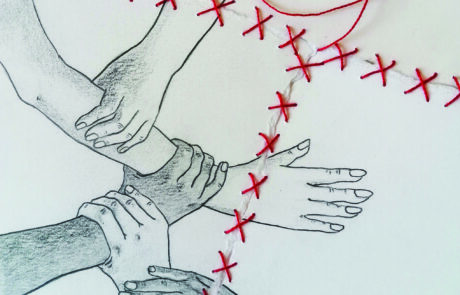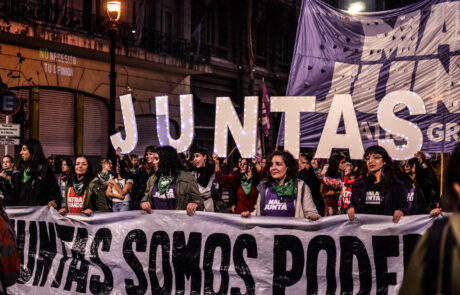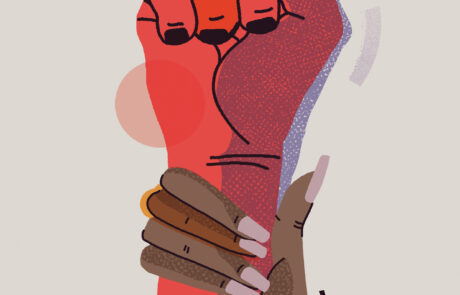
In the spider’s web. Violence against children and the struggle of protective mothers. Prologue.
I This book that you are holding in your hands is the history and present of a struggle that begins the day that your life explodes into a thousand pieces. Your children’s life has already done so, but yours implodes in the moment that you become aware of it. The day that your child reveals to you that their father touches them down there or the [...]

The reinvention of the strike: 10 years of feminist uprising in Argentina
by Verónica Gago First published in Ojalá 1. This year, the cycle of protests known as Ni Una Menos in Argentina will turn 10. The first march under that banner took place June 3, 2015. Then came the strikes and demonstrations: first the Women’s Strike on October 19, 2016, then came the transnational and transfeminist mobilizations, which began on March 8, 2017. The green tide—so [...]
Fatima Ouassak on the power of mothers
Fatima Ouassak, by Marie Rouge by Marta Malo and Verónica Gago. Translated by Anouk Devillé First published in Ojalá The family is a concept that the far right has attempted to monopolize, and the idea of the “mother” is a central part of that dispute. We’re witnessing a coordinated offensive against politicized, feminist, and anti-racist maternities with deep social roots, among which the Mothers [...]

Building self-defence is building self-government. Taking back the power stolen from us
Helena Silvestre (São Paulo) Sometimes I think that any Black man, like me, Just wants his own piece of land in the hills. No bling, barefoot, swimming in the stream, no hunger, picking fruit from the tree. Bro, that's what I think and that too is my dream, but in São Paulo God is a hundred- dollar bill. Racionais MC's (2002): "Vida loka, parte 2", on [...]

Infamy is Free Media and Judicial Criminalization in Infancia Libre Case
Introduction As long as you are friendly, men protect you. The minute you stop, the battle starts. Mary Karr In the midst of the politically turbulent spring of 2019, four women were arrested. Recounted with a dramatic flair, their stories filled many minutes of news, talk show, and current affairs programming on television, the radio, and all the mainstream media for months. The subjects—four women who [...]

Riders on the storm. Delivery Platform Workers Fight Back. (Chapter 1, second part)
1. Falling into the delivery platform trap. By Nuria Soto This text will be published in two parts, this is the second part. The algorithm as boss Given my previous experience in other jobs, joining Deliveroo intrigued and attracted me. I could make my own way around the city, without a boss to watch over me, give me directions or admonish me about my work performance. [...]



